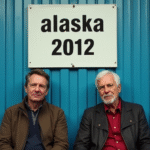Introduction
In the hiring process, age should not be a determining factor for selection. What truly matters are the skills and aptitudes a candidate possesses, and whether these align with the requirements of the position.
However, age-related biases exist when considering candidates for a job, leading to their exclusion or dismissal despite their professional experience.
Understanding Ageism
Ageism is a form of discrimination, prohibited by the Constitution. Neither the Magna Carta nor the Federal Labor Law stipulate age as a limitation for hiring.
The OECD’s 2025 Employment Perspectives report confirms that ageism is a real issue in Mexico. The country ranks fourth with the lowest employment rate for individuals aged 45 to 54.
According to an OCC survey, 75% of workers believe that age is a barrier to being hired by an organization.
Participants in the survey stated that age often serves as a reason for not hiring workers and that some have experienced rejection during recruitment processes due to their age.
OCC also notes that 18% of participants believe that ageism only affects certain positions, sectors, or activities since companies must consider details like the health and physical integrity of their staff.
This can lead employers to consider age for performance and the completion of certain tasks without endangering employees.
Expert Opinions
Rosario Ayala, a conscious leadership coach, emphasizes that age should not limit professional growth. Instead, it’s one’s attitude towards change, innovation, and continuous improvement that truly matters.
Ayala advises against labeling adults as overly traditional and young individuals as inexperienced, as age-related attitudes or preferences can become organizational issues when not leveraged effectively.
She stresses the importance of having a diverse workforce, including young people, adults, seniors, experienced and inexperienced personnel, as well as diversity in race, gender, and other aspects.
Ayala asserts that organizations should develop strategies and provide opportunities for individuals to apply their qualities and contribute their talents towards fulfilling the organization’s mission.
Practical Implications
Teresa López Pelcastre, Director of Clients at Brivé Soluciones, highlights that ageism influences hiring practices and should be eliminated within companies.
López points out that age-related biases, such as assuming older individuals lack technological skills, are common misconceptions.
She acknowledges that individuals have personal inclinations, which can affect their decisions when evaluating how long they should work. When someone believes they are incapable due to age, it creates a significant limitation.
The Importance of Eradicating Ageism
There is a growing trend of delaying retirement, with more older individuals seeking to remain active in the labor market.
Ipsos notes that determining retirement age can be challenging, as people live longer while savings or pensions may be insufficient to support them in their final years.
Despite many wanting to work as long as possible, significant obstacles face older workers in the labor force, primarily whether they are considered employable beyond a certain age.
Addressing Ageism: A Two-Way Approach
Rosario Ayala suggests that to reduce age-related biases in hiring, both companies and individuals must work together.
She advises focusing on equipping human resources, recruitment, and organizational development teams with awareness of their biases and a non-limited perspective.
Teresa López emphasizes the importance of self-improvement for candidates and employees, as self-recognition now holds greater value without introducing biases.
She encourages taking the time to understand one’s capabilities, which helps attract suitable individuals and develop teams effectively.
Key Questions and Answers
- What is ageism in the workplace? Ageism refers to discrimination based on age, which is prohibited by law. It can lead to older workers being overlooked or dismissed despite their experience.
- Why is ageism a concern? Ageism negatively impacts employment opportunities and professional development for older workers. It also limits organizational growth by excluding diverse talent pools.
- What can be done to combat ageism? Both companies and individuals should work together. Companies can train HR teams to recognize biases, while individuals can focus on self-improvement and understanding their capabilities.
- How does ageism affect the labor market? Ageism contributes to lower employment rates among older workers and hinders their active participation in the labor force.






